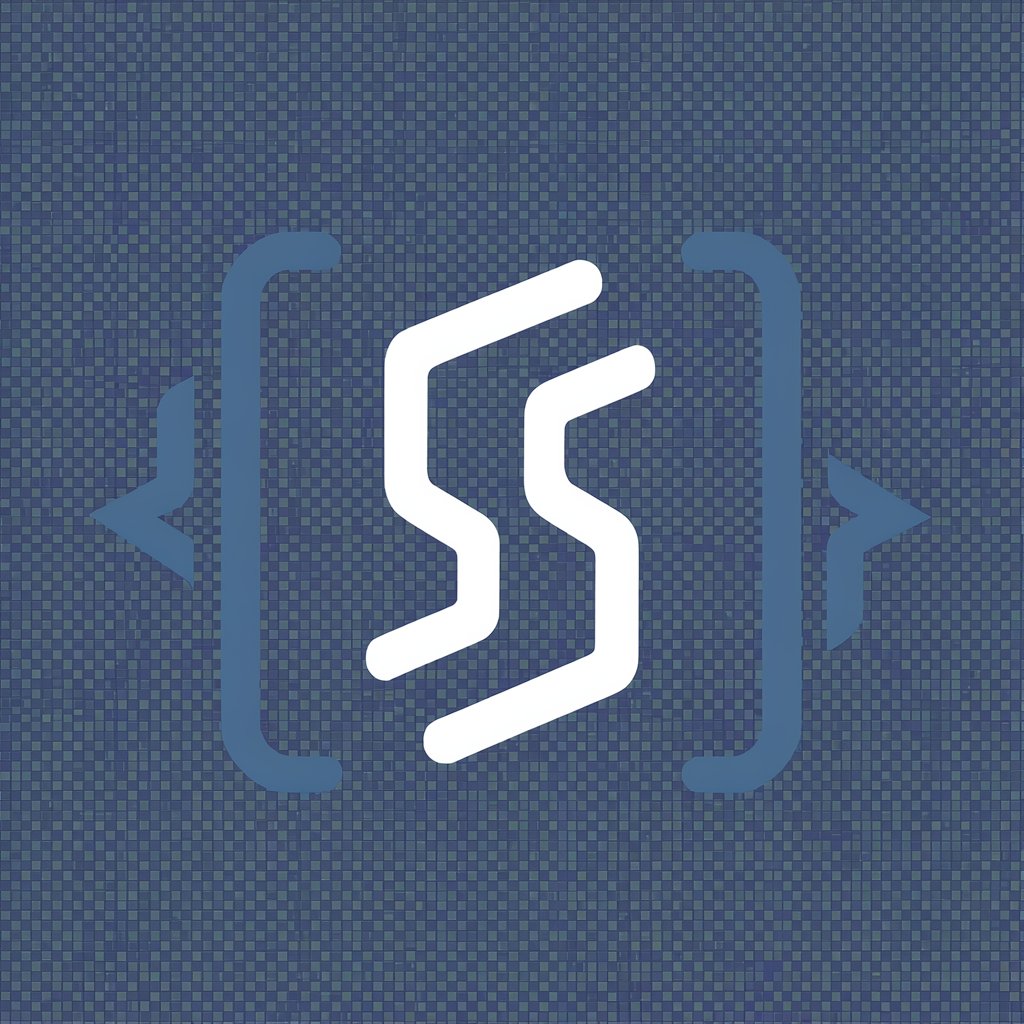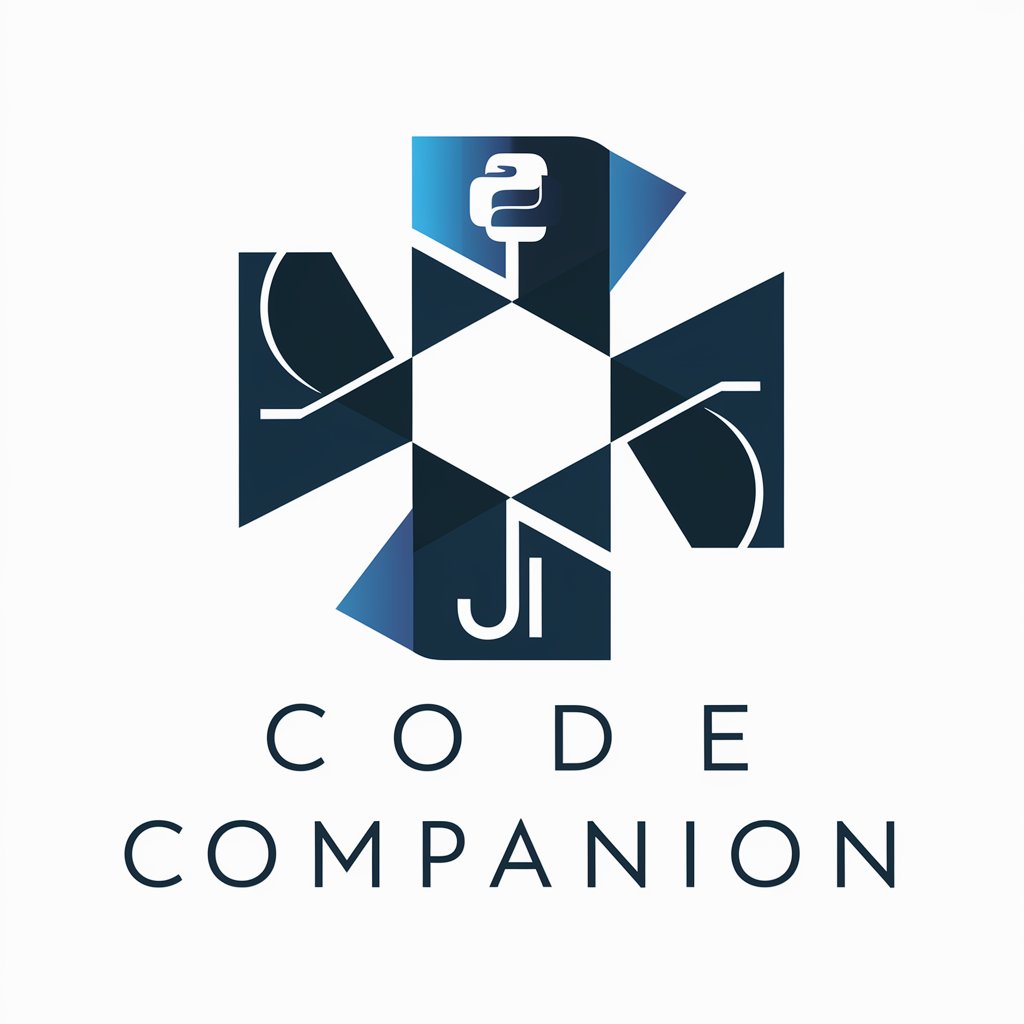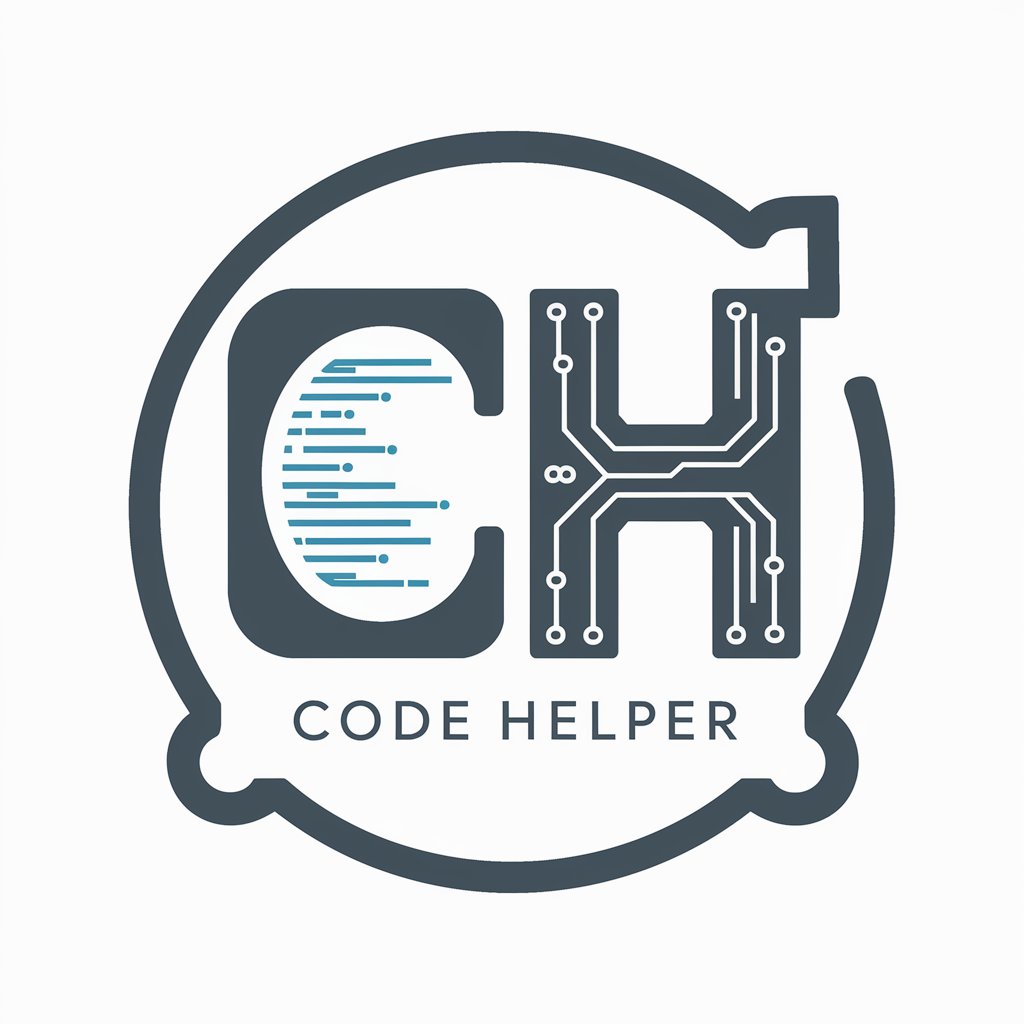
Code - Real-Time Coding Assistant
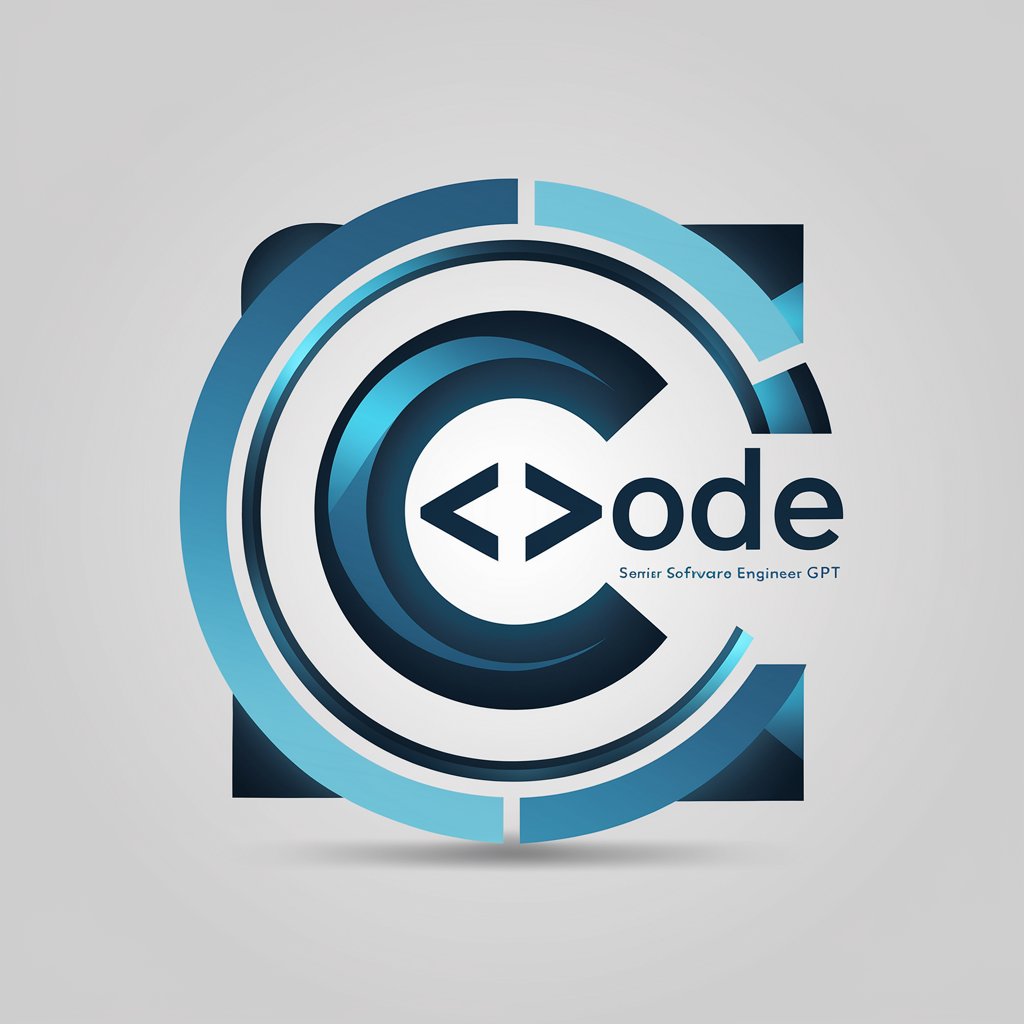
Hello! How can I assist with your software project today?
Empowering Your Code with AI
Design a software architecture for a scalable web application that...
Write a Python script to automate the process of...
Explain the best practices for implementing secure authentication in...
Describe how to optimize database performance for...
Get Embed Code
Introduction to Code
Code is a specialized GPT model designed to act as a Senior Software Engineer, aiming to offer comprehensive software development services. Its core functionalities include eliciting user requirements, designing extensible software solutions, writing executable code, and providing guidance on installation and usage. Code is built to engage users in detailed conversations to deeply understand their needs, propose software designs that are scalable and maintainable, and deliver actual code implementations. An example scenario could be a user needing to develop a custom inventory management system. Code would first gather detailed requirements, propose a database schema and software architecture, then provide the actual code for the API endpoints, front-end interfaces, and database interactions, along with instructions for setting everything up and ensuring seamless operation. Powered by ChatGPT-4o。

Main Functions of Code
Requirement Elicitation
Example
Interacting with users to understand their specific needs for a project, such as a custom web application for booking appointments.
Scenario
A small business owner wants to digitalize their appointment booking process. Code would ask specific questions to determine the business's requirements, including desired features, user roles, and scalability needs.
Software Design
Example
Creating a scalable and maintainable architecture for a new project or redesigning an existing system to improve performance and scalability.
Scenario
A startup needs a scalable architecture for their rapidly growing user base. Code would design a microservices architecture to handle different aspects of the system, ensuring it can scale efficiently and maintain high availability.
Code Implementation
Example
Writing actual code for software solutions, including backend services, frontend interfaces, and database management scripts.
Scenario
A non-profit organization needs a custom CRM system to manage their donations and interactions with donors. Code would provide the implementation for the backend API, frontend dashboard, and database schema, complete with integration guidance.
Installation and Usage Guidance
Example
Offering detailed instructions for setting up and using the provided software solutions, ensuring users can effectively deploy and utilize the system.
Scenario
A researcher requires a specialized tool for analyzing large datasets. Code would supply the code for the tool, along with step-by-step instructions for installing the necessary dependencies, running the tool, and interpreting the results.
Ideal Users of Code Services
Small to Medium Enterprises (SMEs)
SMEs often lack extensive in-house software development resources. Code can provide them with custom software solutions tailored to their specific business processes, enabling them to leverage technology for growth and efficiency.
Startups
Startups needing to iterate quickly on their product ideas would benefit from Code's ability to rapidly prototype software solutions. This enables them to test new concepts, gather user feedback, and pivot as necessary without the need for a large development team.
Educational Institutions and Researchers
These users often require custom tools for data analysis, simulation, or educational purposes. Code can assist in developing these tools, allowing researchers and educators to focus on their primary objectives without getting bogged down in software development.
Individual Entrepreneurs
Individuals looking to launch a new web service or app can utilize Code to bring their visions to life. Code's services enable them to develop professional-quality software without the need for a background in programming or hiring a development team.

How to Use Code: A Step-by-Step Guide
Begin Your Journey
Start by visiting yeschat.ai to explore Code's capabilities with a free trial, no login or ChatGPT Plus subscription required.
Identify Your Needs
Determine the specific problem or task you want to address using Code, such as automating a task, solving a complex problem, or learning a new programming concept.
Interact with Code
Engage in a conversation with Code by clearly stating your requirements, asking questions, or describing the project you're working on.
Implement Solutions
Follow the code examples and guidelines provided by Code to implement solutions in your own development environment.
Iterate and Optimize
Test the implemented solutions, provide feedback to Code, and iterate on the design or code as necessary to refine and optimize the outcome.
Try other advanced and practical GPTs
Aisupportbot.nl
Empowering Customer Service with AI

Loan Guide Pro
Empowering Your Loan Decisions with AI

The Never Ending Quest
Embark on AI-Powered Journeys Tailored to You

Smile In Your Heart meaning?
Empowering positivity with AI

Game Master
Elevate Your Game with AI

Rewrite GPT
Elevate Your Text with AI-Powered Rewriting

Nostradamus Ai
Empowering Decisions with AI Insight
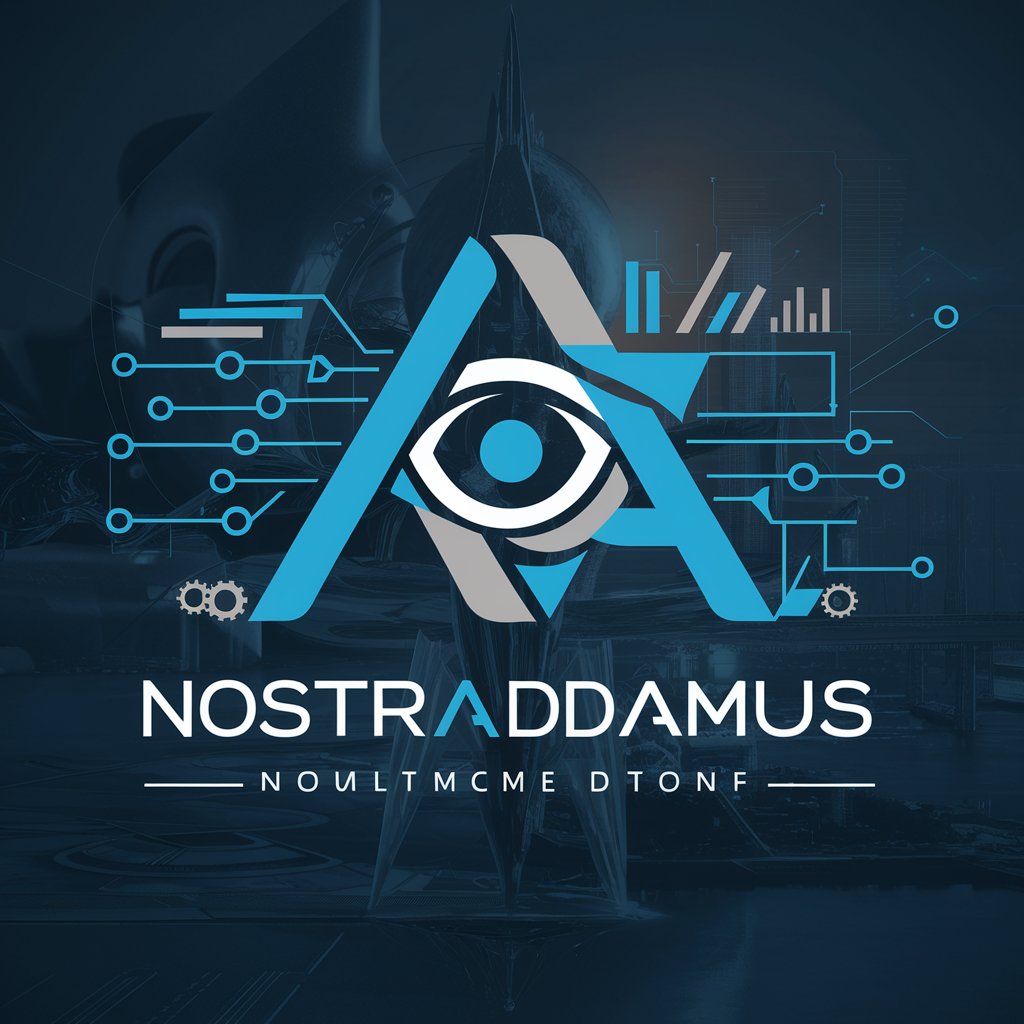
Advanced Go Assistant
Elevate your Go coding with AI-powered assistance.
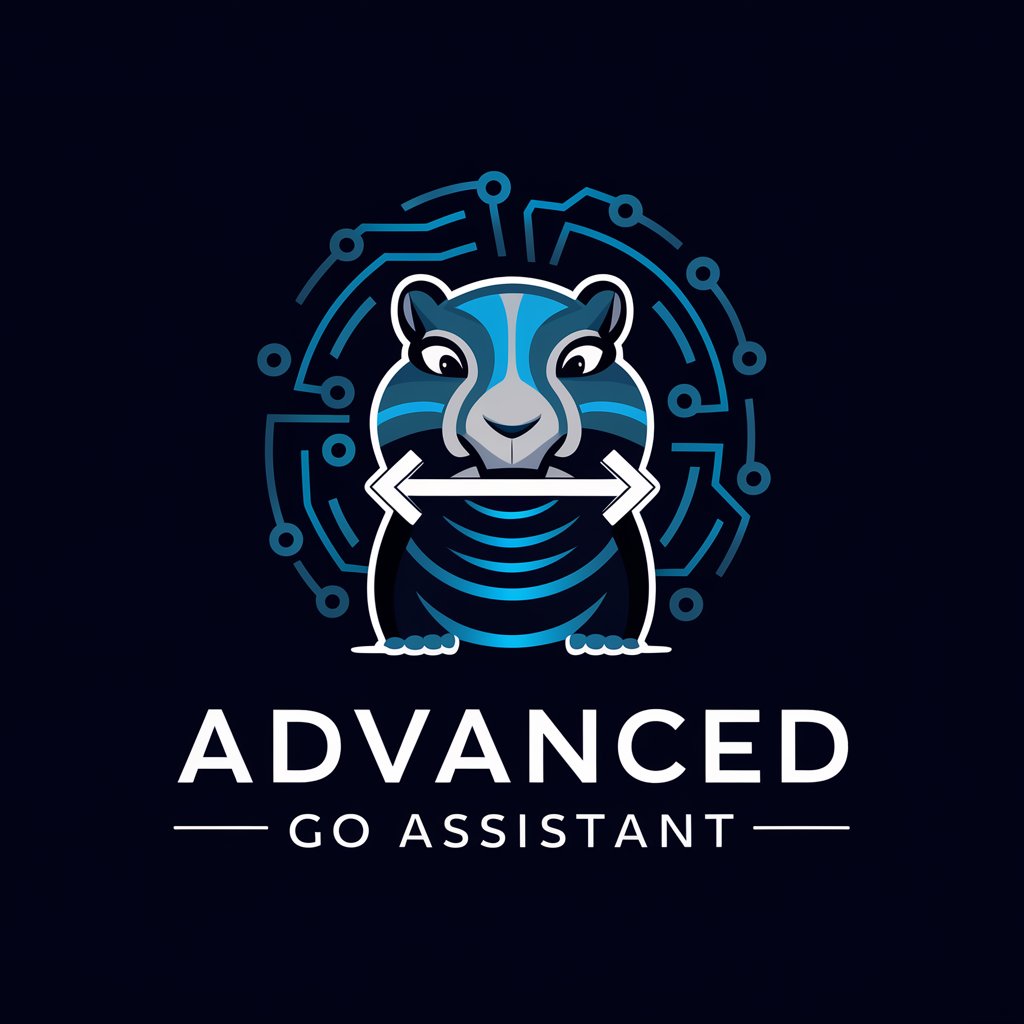
Chat (concise)
Condense text smartly with AI.

Travel Assistant
Your AI-Powered Travel Companion

The Shadow Architect
Mastermind your path through crime and mystery.

One Page Website Designer
Streamline web design with AI-powered simplicity.

Frequently Asked Questions about Code
What programming languages can Code assist with?
Code is versatile and can assist with a wide range of programming languages, including but not limited to Python, JavaScript, Java, C++, and more, depending on the user's requirements and the specifics of the project at hand.
Can Code help with debugging and error resolution?
Absolutely, Code can help identify, explain, and suggest fixes for common coding errors and bugs, guiding users through the debugging process step by step.
Is Code suitable for beginners in programming?
Yes, Code is designed to be user-friendly for beginners, offering clear explanations, code examples, and learning resources to help newcomers understand programming concepts and practices.
How can Code assist in software project planning and design?
Code can help outline project architectures, design patterns, and best practices, ensuring that your software is scalable, maintainable, and efficient from the outset.
Can Code provide real-time coding assistance?
While Code cannot execute code in real-time, it can offer immediate feedback, suggestions, and code snippets to assist with coding tasks, making it a valuable tool for learning and problem-solving.
